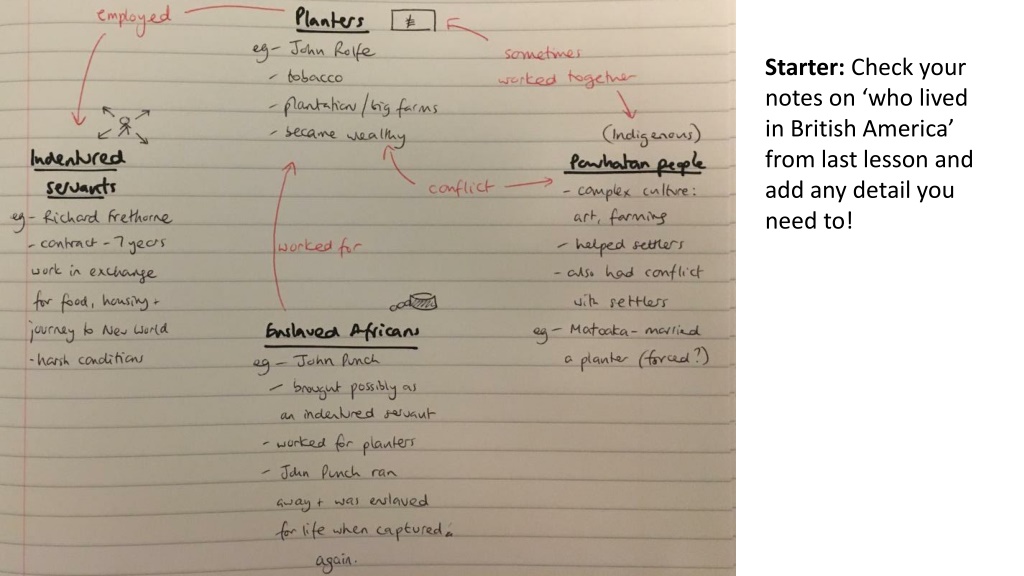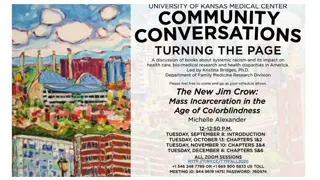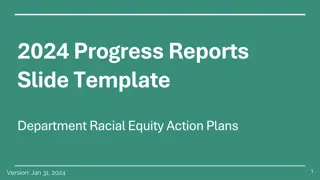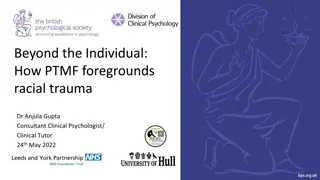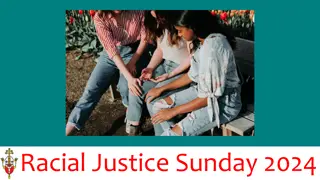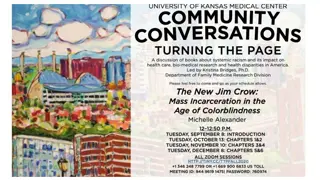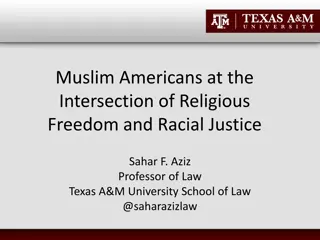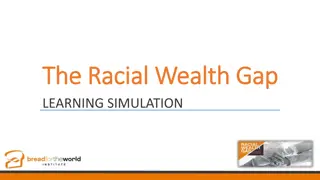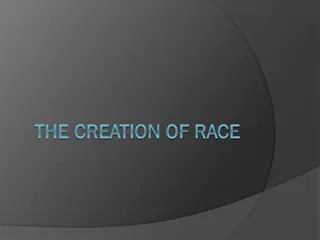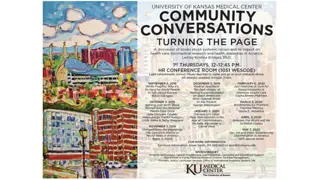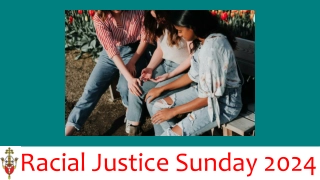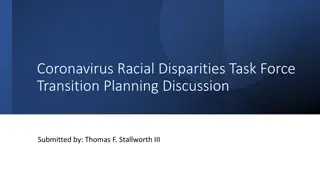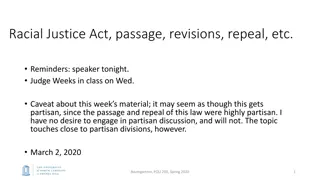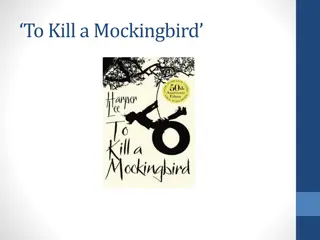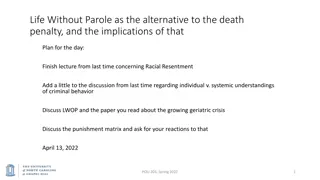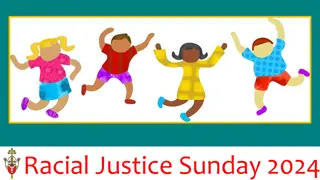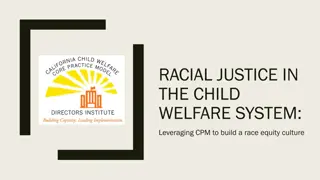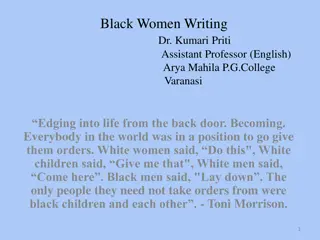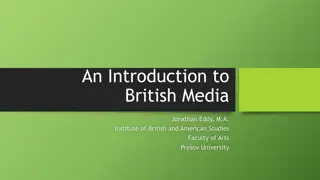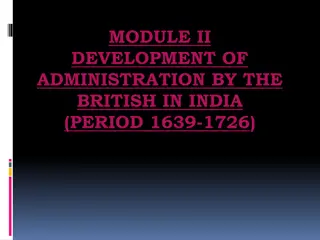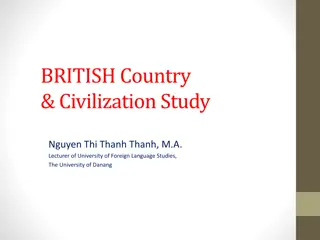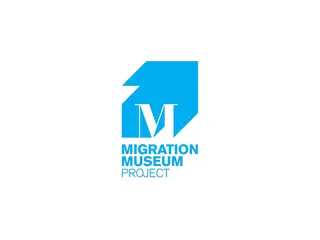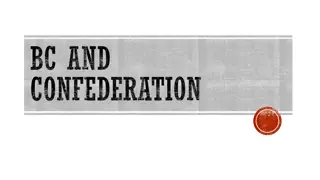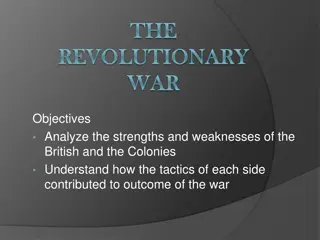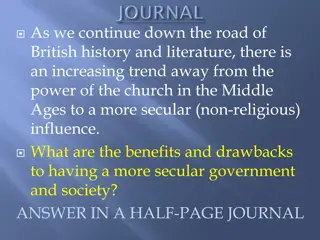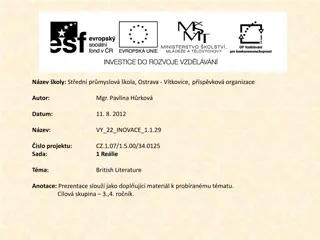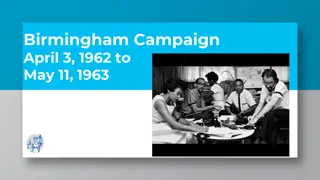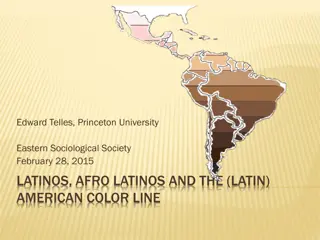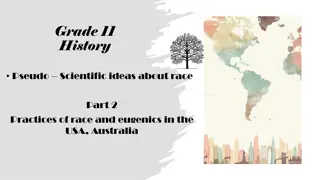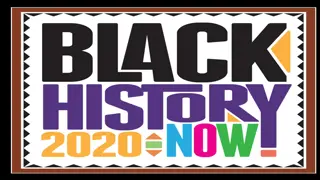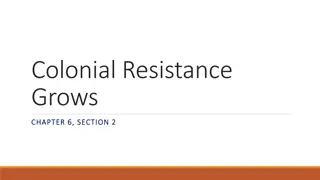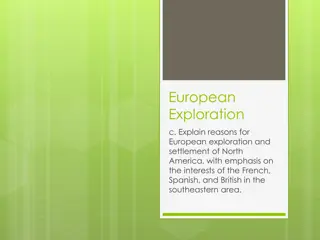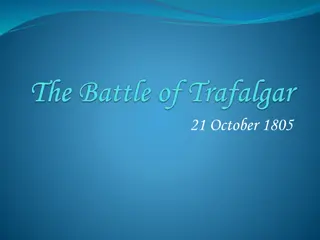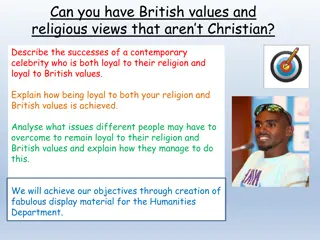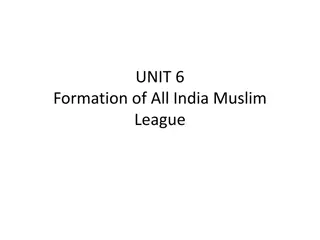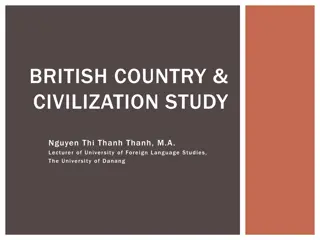Evolution of Racial Ideas in British America
Explore the historical journey of racial ideologies in British America, from the presence of free people of African descent in the Tudor period to the development of hardened racial beliefs justifying slavery in the 17th century. Learn how attitudes towards race evolved in response to changing societal dynamics, such as the Barbados Slave Codes, and uncover the roots of racial perceptions originating from medieval Europe.
Download Presentation

Please find below an Image/Link to download the presentation.
The content on the website is provided AS IS for your information and personal use only. It may not be sold, licensed, or shared on other websites without obtaining consent from the author. Download presentation by click this link. If you encounter any issues during the download, it is possible that the publisher has removed the file from their server.
E N D
Presentation Transcript
Starter: Check your notes on who lived in British America from last lesson and add any detail you need to!
How did ideas about race develop in the New World? Lesson Target: Understand the impact of Bacon s Rebellion on ideas of race in the New World
Last year you studied a group of Black Tudors what did we learn? There were free people of African descent living in Britain in the Tudor period. Historian Miranda Kaufmann has researched approximately 200 of them. The most well known was John Blanke, who played trumpet at the court of Henry VIII. Some converted to Christianity.
1500s Why was it that someone like John Blanke in the 1500s was free and working at the court of Henry VIII for good pay but by the 1600s and 1700s thousands of Africans were being enslaved? This period saw ideas about race develop develop and harden These ideas were used to justify slavery. harden. 1700s
Where did ideas about race come from? In the medieval period, Europeans saw Africa as exotic, rich and strange. The few travellers who had been reported perfumed rivers, gold and diamonds strewn on the ground and fantastical beasts. Documents from before the mid 1600s rarely if ever used the words black and white to describe people. People would be more likely to identify by their religion, not their race. A map made in Spain in 1375, showing the medieval kingdom of Mali in West Africa
What was starting to change in the 17th century? In the British colony of Barbados, a huge boom in demand for sugar had led to a big increase in enslaved Africans being brought to the island. The white planters were very quickly finding themselves to be a ruling minority, vastly outnumbered by the black enslaved population. In 1661, a new code of laws was brought in, the Barbados Slave Codes. Discuss: What does this extract from the slave codes tell us about how attitudes to race were changing? Extract from the Barbados slave codes, 1661 [Enslaved Africans] are a heathenish brutish and a dangerous kinde of people Being brutish slaves they deserve not the legal trial of twelve Men of their peers. If any [enslaved African] shall offer any violence to a Christian, such slave shall for his and her first offence be severely whipped by the Constable. For his second offence of that nature he shall be severely whipped his nose slit, and be burned in some part of his face with a hot iron.
A turning point: What was Bacons Rebellion? Read the account of Bacon s Rebellion and answer the short questions in your exercise book as you go. Lastly, discuss these questions in the chat: 1) How were the laws of Virginia changed after Bacon s Rebellion? 2) Why do you think these laws were changed? 3) How do you feel about what you have learned today? What further questions do you want to ask?
Word bank: Indentured servants People who had to work for free for a set period of time (usually 7 years) Powhatan The indigenous (original) people of Virginia Enslaved Being owned by another person for life, with no freedom Hierarchical A strictly structured system where some people had more rights than others Inferior Worth less Militia A group of people with weapons; not an official army Overthrew Remove someone from power Amputated Cut off Privilege Rights or freedoms that only certain groups of people have
